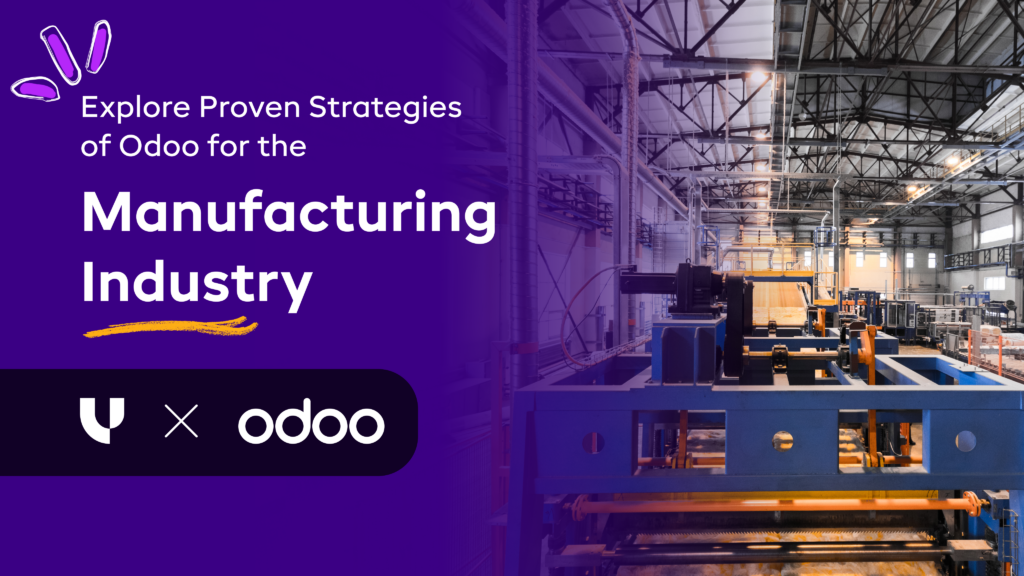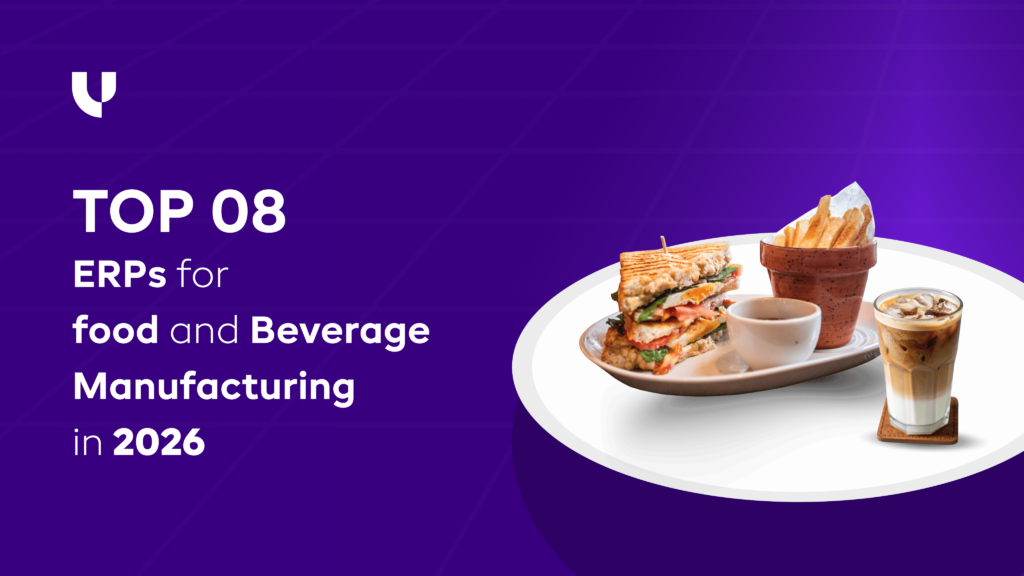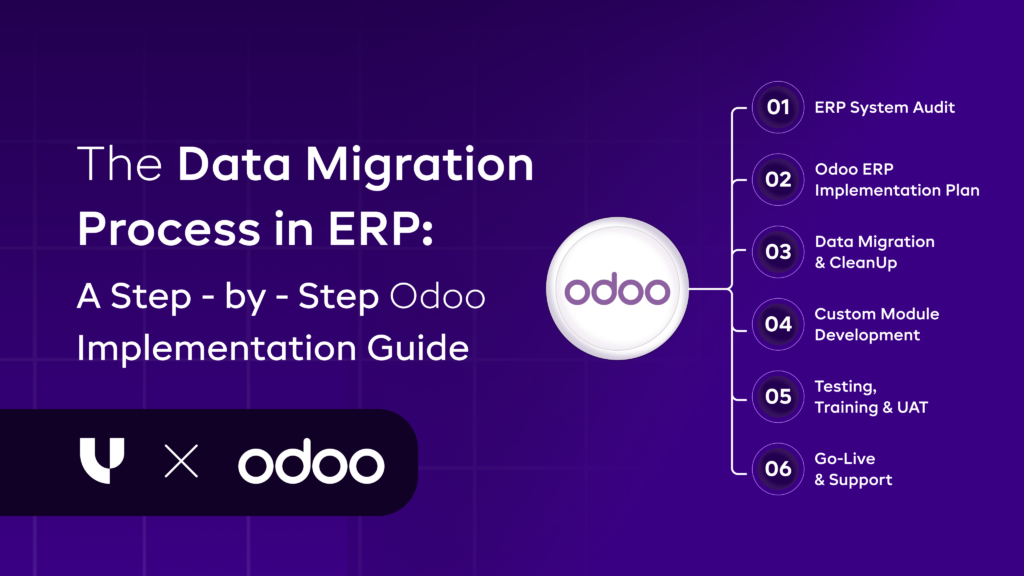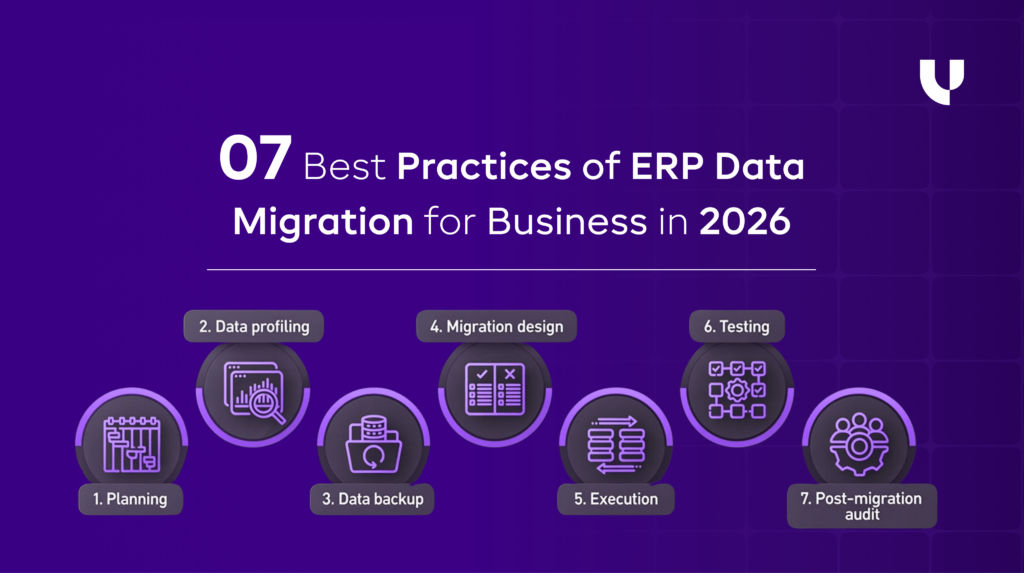Explore Proven Strategies of Odoo for the Manufacturing Industry
Published on September 10th 2025

Introduction
Running manufacturing operations in 2025 isn’t easy!
From managing rising demands to keeping up with customer expectations, it can become overwhelming soon.
However, that’s where modern enterprises can equip their manufacturing with Odoo ERP, the go-to option for improving and automating the industry.
This blog takes a closer look at how Odoo for manufacturing streamlines your operations. Let’s get started.
Odoo’s Role in Transforming the Manufacturing Industry
Odoo is one such exploratory platform in the manufacturing industry that centralizes and automates critical procedures. In comparison to traditional manufacturing processes, which often lead to data silos, inefficiencies, and inaccuracies, Odoo manufacturing has taken the necessary steps to address these challenges by offering a unified platform.
From inventory management and production planning to control and maintenance, Odoo is available to help you make informed decisions and create a roadmap. Odoo's platform design enables manufacturers to integrate just the utilities required for their purposes, resulting in a flexible and customized solution.
What’s more? The open-source nature of Odoo requires organizations to select modules and interact with third-party apps to enable scalability. Odoo's adaptability feature advances the production process and allows for ongoing innovation and development. Learn more about Odoo manufacturing here in this blog.
Manufacturing Management Modules in Odoo ERP
Production Planning
Production planning enables firms to establish total production capacity, detect consumer demand, and coordinate related industrial processes.
Odoo manufacturing ERP software answers the 'what, when, and how much' questions, satisfying customer expectations, eliminating any under- or overproduction issues, lowering lead and cycle times, and boosting the company's KPIs. Production planning with Odoo streamlines the production process and delivers end-to-end automation, lowering mistakes and boosting overall efficiency.
Product Life Cycle Management (PLM)
Efficient product lifecycle management is critical for every manufacturing organization because it provides comprehensive support and control over all product-related operations, from product ideation to manufacture and servicing.
Odoo Product Lifecycle Management (PLM) provides a comprehensive solution for organizing product idea creation, design, production, marketing, and post-release support. It collects all product-related data and consolidates it into a uniform platform from which producers may access the information as needed. Timely reports enable users to track all processes, predict potential issues, and avoid problems.
Inventory Management
Proper inventory management ensures that producers have the appropriate quantity of goods on hand, avoiding overstocking and understocking. Odoo's factory inventory system is a versatile solution that can track inventory replenishment as well as warehouse performance, increasing management efficiency.
Ventor, a straightforward application designed for Odoo warehouse management integration, ensures that all users are directed to effectively manage the company's inventory operations. An effective use of resources also eliminates waste, lowers transportation costs, and maximizes storage space.
Sales
After streamlining the manufacturing process, Odoo's modules provide tools for controlling the transit of items to customers. The Odoo Sales module enables manufacturers to plan, manage, and control the whole sales process, from quote to delivery.
The Sales module installation enables effective selling, automated quotes, product and pricing control, KPI tracking, order and contract administration, improved communication, and other benefits.
Quality Control
Quality is an essential component of every business, and it should be controlled at all stages of production. Odoo's quality control module enables organizations to undertake all quality-related procedures, such as inspections, certifications, and testing; timely reports are utilized to identify faults in production or relevant services and escalate the issue to the appropriate departments.
Odoo quality control may be applied to single or multiple goods throughout the same manufacturing cycle.
Want to start a project with us?
Empowering businesses to achieve greatness through strategic guidance and innovative solutions.
Book A Demo
Benefits of Odoo for Manufacturing Companies
Odoo Manufacturing facilitates the scheduling, planning, and processing of manufacturing orders. Implementing Odoo in a manufacturing firm will give you the following benefits.
Streamlined Manufacturing
Odoo's specialized manufacturing module helps streamline production operations. Odoo's strong features enable industrial organizations to manage the whole production cycle effortlessly. For companies in highly regulated sectors, choosing a specialized erp for food & beverage manufacturing ensures that production efficiency is always balanced with rigorous quality control and full batch traceability across the shop floor.
Odoo delivers the tools required to guarantee seamless and effective operations at every level, from Bill of Materials (BOM) management to work order tracking, production planning, and quality control.
Manufacturers in Riyadh can optimize production, inventory, and maintenance workflows via our Odoo Services Riyadh tailored for local industrial standards.
Improved Inventory Management
Managing inventory is crucial in production. Manual inventory management can lead to worse ROI (return on investment) owing to data errors, stocking difficulties, and poor judgment.
However, with Odoo ERP for manufacturing, you can use tools like stock level monitoring, reorder point management, and inventory optimization to help manufacturing organizations reduce stockouts, maximize working capital, and maintain control over inventory levels.
Procurement & Sales
Odoo integrates with procurement and sales modules, improving supply chain visibility and cooperation. By supporting smooth contact with suppliers, managing purchase orders, and tracking order fulfillment, we ensure a seamless process. Odoo ERP for manufacturing enterprises provides a comprehensive perspective of their supply chain activities and allows them to adapt quickly to changes in demand or market circumstances
Optimized Costs
Optimizing manufacturing costs and maintaining an efficient supply chain may quadruple earnings. Odoo's automation features help drive cost optimization and efficiency in industrial processes.
Odoo eliminates human effort and mistakes by automating common operations and optimizing processes, which leads to better resource allocation, production efficiency, and, eventually, cost savings.
Reporting & Analytics
Odoo's reporting and analytics tools enable industrial organizations to leverage data for informed decision-making. Manufacturers can promote continuous improvement and remain competitive by measuring key performance indicators (KPIs), identifying opportunities for improvement, and making informed decisions based on real-time information.
Scalability & Flexibility
Odoo's modular framework enables scalability and flexibility for industrial enterprises. Companies can start with core modules and scale up as their operations expand. Odoo for Manufacturing enables you to start small and add functionality as your manufacturing firm expands.
Furthermore, Odoo's customization capabilities enable organizations to adjust the system to their individual needs, resulting in a perfect match for their unique processes and workflows.
Real-time Insights
Odoo ERP enables real-time access to critical company information. Inventory counts, sales statistics, customer numbers, sales records, and other information may be accessed at any time. Higher-level management access. Real-time information allows users to receive business analytics 24 hours a day, seven days a week, regardless of their geographical location.
Odoo ERP has reporting and analytics features that enable manufacturers to acquire actionable insights into key performance parameters including production efficiency, resource usage, and inventory turnover. Because of Odoo's manufacturing benefits, businesses may use more accurate data to increase efficiency.
Challenges and Solutions: Implementing Odoo in Manufacturing
When it comes to establishing a new ERP system for an enterprise like Odoo, there are several challenges to consider. These challenges include:
1. Data Migration Issues
Implementing Odoo and migrating data to new systems, such as inventory levels and production plans, often leads to data inconsistencies, delays, and interruptions in the manufacturing process.
Using Odoo's data migration tools or employing people with Odoo deployment experience will help guarantee that the data is migrated correctly. To avoid these concerns, regular testing and validation are carried out during the transfer process.
2. Customization Complexity
Odoo's great level of flexibility makes it tough for manufacturers to adjust the system to their own business needs. At that point, manufacturers begin by integrating Odoo's basic modules before adding modifications based on their individual needs and requirements.
Custom modules and processes can be developed based on the recommendations after talking with Odoo-certified partners. This allows for efficient Odoo adaptation without overcomplicating the system.
3. Employee Resistance and Training
When transitioning to Odoo or other ERP systems, employees may experience foreign interfaces. This immediately disrupts company procedures and causes operational inefficiencies.
To avoid this risk, all personnel who use this system must receive rigorous training. Odoo offers a user-friendly interface, providing both specific job training sessions and ongoing support to ensure a seamless transition.
4. Integration with Legacy Systems
Many factories use old software or technology that does not immediately connect with the Odoo system. This lack of connection causes data inefficiencies, manual data entry, and time delays in the manufacturing process.
Odoo stands out as the ideal solution since it provides a variety of connectors and APIs and enables connection with other software systems, including legacy platforms. Furthermore, manufacturers must work with Odoo professionals to create bespoke connections or middleware solutions that enable seamless data flow between systems.
5. Change Management and Process Overhaul
Several important modifications have occurred throughout the implementation of an ERP system, such as Odoo, in order to develop the business process. The task of aligning production workflows, inventory management methods, and reporting structures with Odoo might be intimidating.
The most effective strategy to avoid interruption is to deploy Odoo correctly. Manufacturers should focus on one part of the business at a time, such as inventory or procurement, before expanding globally. Clear communication and teamwork are required to explore the advanced Odoo functionalities.
Conclusion
In conclusion, Odoo ERP offers a comprehensive suite of benefits for manufacturing companies seeking to streamline operations, improve profitability, and stay competitive in today's fast-paced market.
From streamlined production processes and enhanced inventory management to improved supply chain visibility, Odoo helps you unlock the next phase of your business.
Why Choose Uncanny Consulting?
Uncanny Consulting is a popular Odoo installation partner with a track record of success in helping industrial organizations use Odoo. Our experienced Odoo consultants understand the particular issues that manufacturers confront and can personalize the benefits of Odoo for Manufacturing solutions to your specific requirements.

About Author


